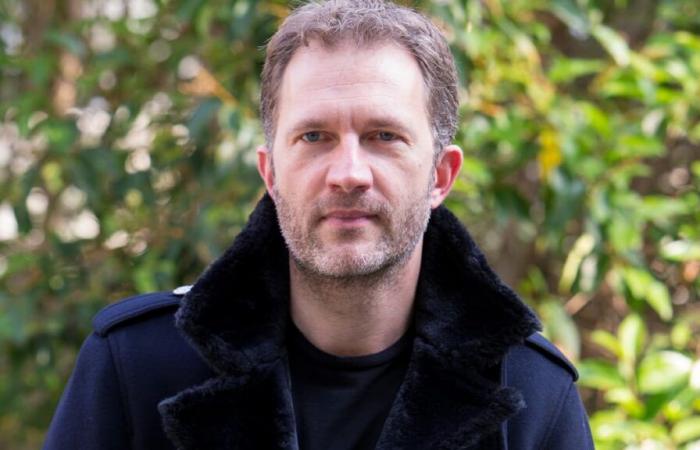The sword of Damocles of Islamist terrorism continues to hover over the heads of the French, even if it is no longer characterized solely by armed violence, believes the former director of security of Charlie Hebdo.
“You don’t need to have a Kalashnikov or a knife to be a jihadist. Someone who polices morals in his neighborhood is a jihadist, that is to say he is leading an anti-Republican fight for the promotion of a totalitarian model,” believes Éric Delbecque.
Also an author, the latter took advantage of the 10th anniversary of the attack to publish, on January 2, The irresponsiblea work in which he deplores that civil society has not been able to learn the necessary lessons in order to prevent other tragedies.
Demonstration after the attack of January 7, 2015.
Photo d’archives
“I am quite convinced,” he continues, “that we must move from the Charlie spirit to a Charlie generation. The Charlie spirit is obviously to defend people who have been sentenced to death for their opinions, their drawings and their caricatures. It’s an emotion and it’s very legitimate. But today, why a Charlie generation, especially among the youngest? This fight structures an entire vision of the world and a way of living based on respect for others, their ideas and nuance.”
The French are still Charlie
Despite these observations, are the French still Charlie? The answer is yes, confirms a survey whose results will be revealed in the special issue of Charlie Hebdo to commemorate the terrorist attack of January 2015.
According to the editor-in-chief, Gérard Biard, here is one of the strong points of this survey carried out by the IFOP-Jean-Jaurès Foundation: more than three out of four French people (76%) consider that the right to caricature, to blasphemy and freedom of expression are fundamental rights that must be defended.
“It’s quite surprising, because intuitively, you would think that it has gone down. It is rather a spectacular increase compared to the same survey carried out in 2012, where 58% defended these rights,” rejoices Mr. Biard.
If the French remain united with Charlie Hebdoit is in particular because there were “booster shots”, estimates the designer Juin. “There was the assassination of Samuel Paty, a professor who was beheaded and, at the moment, it is the trial of the people who gravitated around the assassin, who were possibly accomplices.”
Support from Iran
The support of Charlie Hebdo sometimes come from where we least expect them. The newspaper noticed this when it set up a drawing competition of Iranian mullahs in support of the “Women, Life, Freedom” movement two years ago.
“We received threats from the Iranian regime,” remembers Gérard Biard. The mullahs didn’t like it at all, but we received tens of thousands of messages from Iranians all over the world, including a lot from inside Iran, that is to say people who put themselves in danger to thank us.”
So, adds Mr. Biard, “to say that Muslim populations do not like Charlie Hebdothis is totally false. Most are unaware of its existence, and the majority simply don’t care.”
The timeline of events
February 8, 2006: publication of caricatures of Mohammed in Charlie Hebdosome of which appeared in 2005 in the Danish newspaper Jyllands-Posten.
November 2, 2011: a Molotov cocktail attack causes a fire which devastates the premises of Charlie Hebdo just before the publication of a special issue entitled “Charia Hebdo”.
March 2013: following the release of an issue containing a comic strip imagining the life of Mohammed, Al-Qaeda publishes a list of Western personalities wanted dead or alive, including the cartoonist Charb.
January 7, 2015: the Chérif brothers and Saïd Kouachi, armed with assault rifles, managed to enter the premises of Charlie Hebdotaking the designer Coco hostage, and open fire. Twelve people die, including eight members of the editorial staff.
January 9, 2015: the Kouachi brothers are shot dead by police officers as they try to flee a printing shop where they were hiding.
September 2020: Opening of trials of 14 people linked to the terrorist attacks of January 2015. In a special edition, Charlie Hebdo republishes caricatures of Mohammed and angers the Turkish and Iranian governments.
December 2020: All 14 people linked to the attacks are found guilty and sentenced to prison terms.
The employees of Charlie Hebdo victims of the January 7 attack
Cabu
Charb
Tignous
Honoré
Wolinski
Bernard Maris
Mustapha Ourrad
Elsa Cayat






